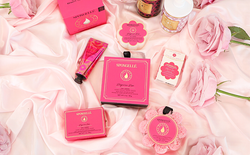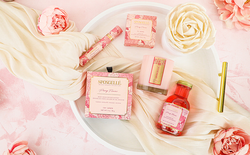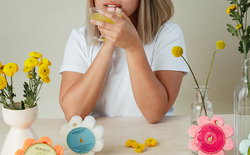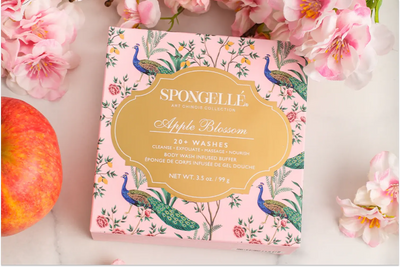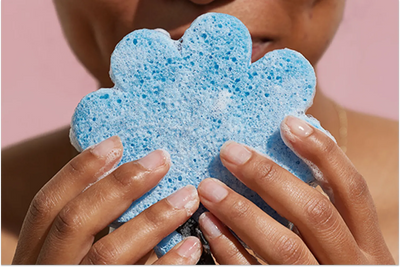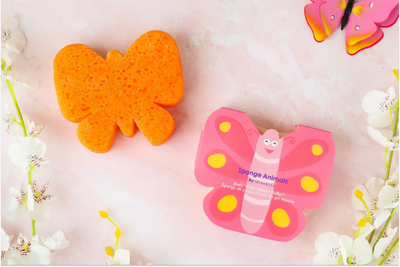We have all had those days where you glance down and your legs resemble the skin of an alligator, not the supple glowing skin you expected. To your utter shock and embarrassment, you find yourself searching high and low for something to add an ounce of moisture back into your skin. If you have ever had dry skin, you know the challenges extend beyond just the surface.
Dry skin can cause a variety of skin conditions that, left untreated, can become quite annoying. Symptoms of dry skin can include itchiness, scales or flakes, rough or cracked skin, and redness. There are a lot of reasons why you may have dry skin, but you may not have realized that the water you use can also affect your skin as well.
We don’t know about you, but without fail, we seem to occasionally struggle with bouts of dry skin. Could your water quality be an additional culprit? Let’s dive in and figure out what hard water is and how it can affect your everyday life, including your skin.
What Is Hard Water?
It can be easy to imagine that water is just water, right? The truth is that most of us have a preference for drinking water and can tell when something feels off with the taste. With that being said, it stands to reason that there is a lot more to water than meets the eye.
The spots on your dishes making glass less than clear after washing, the slimy feeling you might feel even after washing your body or hands, can all be the result of hard water. Simply put, the amount of dissolved magnesium and calcium in water can affect water hardness. Water that is hard generally has a higher concentration of dissolved minerals in it, especially magnesium and calcium.
Soap reacts with the calcium in hard water, and creates what we know as “soap scum.” In addition, whether it's your laundry, hair, or body, more detergent or soap is required to get things clean if you’re using hard water. A key to maintaining supple skin is making sure that the skin barrier is protected and can maintain its moisture. If you think that things like soap scum or cloudy dishes are a nuisance, imagine how your skin feels.
Effects of Hard Water on the Skin
Think of it this way, if you can imagine that your glassware looks lackluster and has a residue after washing with hard water, think about how that same water will impact your skin and hair long term.
If the water you use is not able to fully dissolve soap or detergents, this can pose a challenge to the natural oil on your skin. Excess minerals in water can lead to clogged pores after the minerals dry on the skin. You may not realize it but, over time, the skin barrier is disrupted. This can all affect everything from your hair to your skin.
Irritation is one of the most common side effects of hard water on your skin. Without the proper environment for your skin’s natural oil and moisture, it can lead to itchy, flaky, or dry skin.
Hard water can also affect pre-existing skin conditions such as eczema and psoriasis causing symptoms to worsen.
Combine hot water with hard water and you have a recipe for disaster when it comes to the disruption of your skin's delicate environment. So how do you know if you have hard water and what can be done about it if you do?
How Do You Know if You Have Hard Water?
Depending on where you live, hard water shows up at different levels throughout the country. Homes can experience different degrees of hard water depending on which county or city they live in addition to the level of magnesium or calcium in the water.
Common signs of hard water can include:
- White spots or chalky residue once dishes are washed and dried.
- Scale and stain buildup around bathtubs, sinks, and faucet heads.
- Rough or dull linens or clothes after washing.
- Flat or lackluster hair and dry skin.
If you have observed any of these things, it is possible you have a hard water issue. The great news is you can have your water tested and there are solutions!
How To Neutralize the Effects of Hard Water
Neutralizing hard water can be accomplished with some easy-to-implement options. Starting with the most expensive option, you can have a water softener system installed for your home. Ion exchange occurs in the water with a water softener. Minerals like iron and calcium are replaced and removed with sodium ions which creates “softer” water.
Another great option would be to switch your shower head to a water softening one. This allows for the minerals that cause your water to be hard to be filtered out while you shower. Cleansers play a role in helping you lock in moisture on your skin. Opting for a cleanser free of harsh chemicals and one that has ingredients to help you retain moisture is key. You can also switch to a hypoallergenic laundry detergent to reduce the irritants your skin may be exposed to.
Temperature control is also crucial in making sure you’re not unnecessarily drying out your skin further. A lukewarm temperature ensures you get the job done and keeps skin irritation to a minimum. As good as a long, hot bath or shower may feel, it’s best to keep those for infrequent special occasions. The last component is a game-changer in how your skin looks and feels, don’t forget to use a moisturizer!
What To Look for in a Moisturizer
No one wants to put up with scaly, dry, or itchy skin for very long. In addition to solving hard water issues you also want to make sure you add a moisturizer to your skincare routine. Incorporating a great moisturizer can keep your skin hydrated and happy and leave the scales for the snakes. So why is it important to not just grab any moisturizer off the shelf?
Although great marketing tactics may have you believe otherwise, not all products are made with high-quality ingredients. If you are looking for the perfect emollient that can offer you superior hydration from neck to toe, look no further. Spongellé understood the assignment when it came to creating a cruelty-free, paraben-free, and vegan-friendly moisturizer. A moisturizer should include humectants such as plant oils, occlusives, and emollients to help your skin feel smooth and hydrated.
Best Ways To Keep Your Skin Hydrated
Simple changes in your daily routines can go a long way in helping your skin to stay hydrated. Here are some of the best ways to help your skin retain its moisture.
- Avoid wearing clothing wool and other fabrics that may irritate the skin.
- Try to avoid fabric softeners and use detergents formulated in a fragrance-free manner.
- If you have itchy skin, try to resist the urge to scratch. Instead, use cold compresses or ice packs to help with the areas that are bothersome.
- Immediately after hand washing or bathing, moisturize. This will help seal in any moisture.
- Blotting or towel drying can also reduce the amount of moisture lost in your skin.
- Try a humidifier to help keep moisture in the air around you.
- Stir clear of products that strip your skin or use harsh chemicals.
- In order to maintain your skin's natural oils, try to keep your bath to a 10-minute max and use lukewarm water.
Summary
Many of us simply tolerate day-to-day skincare challenges. We don’t realize that small changes can be made to help us look and feel better. Be honest, how long did you go through life without a proper skincare routine? Raise your hand if you thought oily skin didn’t need moisturizer. Ever use toothpaste for a blemish? Nah? Neither did we.
Sometimes we are living with hidden culprits that can easily be swapped out for skin-changing results. Let’s use your old loofah, for example, you may not have realized that your loofah can be a bacteria breeding ground of just, yuck. Spongellé knew there had to be a better option. A sponge that could exfoliate, offer bacteria-resistant cleansing, and hydration all in one. The even bigger shocker is that the same sponge is multi-use!
If you are noticing signs and symptoms that you may have a hard water issue, it’s time to be proactive. Your skin is your body’s largest organ. Simple things like drinking enough water, replacing hard water with a softer version, and adding a moisturizer will all benefit your skin in the long run. We can all benefit from treating our skin like the powerhouse it is and making sure we are nurturing it and nourishing it at all costs.
Sources:
Dry Skin | Clevelandclinic.org


